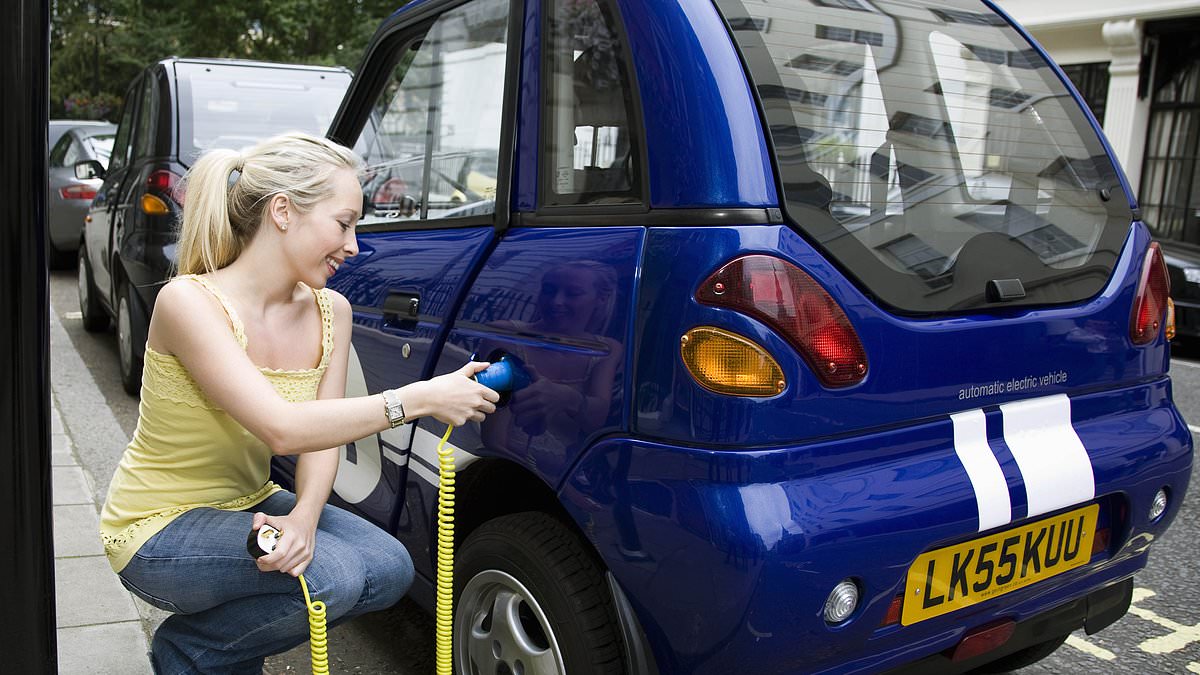Electric vehicles pollute rivers more than other cars because of their weight, according to the chairman of the Environment Agency.
Road run-off from tyres contains pollution, including microplastics, that contaminates the waterways in the UK.
Nearly 20 per cent of the pollution problem in England’s rivers is caused by the run-off from towns, cities and transport, according to a report from the Environmental Audit Committee.
But the heavier a car is, then the greater the amount of particles that are released through tyre wear.
The average weight of a petrol or diesel car is also 150kg (23 stone) lighter than an electric vehicle, an Autotrader study found.
Speaking to The Telegraph, Chairman of the Environment Agency Alan Lovell said: ‘People are worried about tyres now, and electric vehicles, ironically, are worse for that because of their weight.
‘There’s a lot of work to be done on that and we need to take appropriate action there.’
However, some experts say that as battery technology improves then cars will become lighter and will cancel out the difference between petrol, diesel and electric.
It comes as the UK government is actively trying to encourage people to make the switch to electric vehicles in order to hit net zero targets.
Passed into law under the Conservative government, the zero-emission vehicle (ZEV) mandate requires 22 per cent of all vehicles to be sold this year to be zero-emission – covering the likes of electric and hydrogen fuel cell cars.
The target rises every single year, hitting a milestone of 80 per cent in 2030 and 100 per cent in 2035.
Car makers that exceed their quota will have to pay a fine of £15,000 per non-compliant – i.e. petrol and diesel – car to the government.
As a result, car manufacturers are having to ration the sales of petrol and hybrid cars in the UK to avoid falling foul of the government’s rules on zero-emission vehicle sales.
Vertu Motors chief executive Robert Forrester claims vehicle makers are operating under a ‘state-imposed supply chain’ preventing them from selling the cars customers want.
Mr Forrester said: ‘It’s almost as if we can’t supply the cars that people want, but we’ve got plenty of the cars that maybe they don’t want.
‘They (manufacturers) are trying to avoid the fines. So they’re constraining the ability for us to supply petrol cars in order to try and keep to the government targets.’
